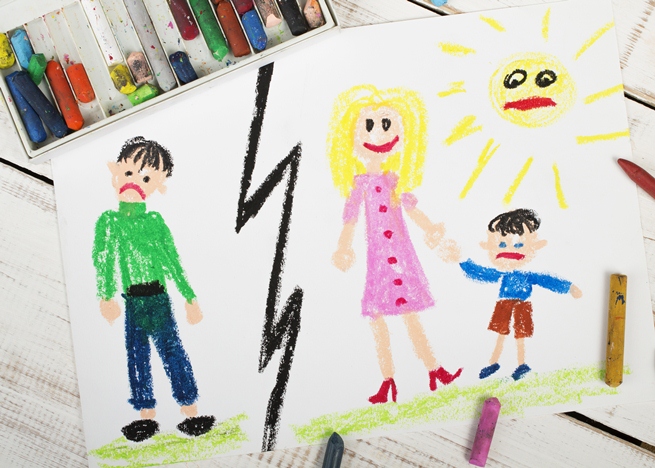When family problems affect children in school
24 Jun 2015

Retired Principal, Mrs Jenny Yeo, shares how problems at home can affect a child’s learning in school.
Recently, one of my friends said, “More and more of my pupils are acting up and not doing well in school because of family problems. Are parents aware of this? Do they know that their relationship as a couple affects their child?”
Researchers at the Center on the Developing Child, Harvard University shared that “when (the) home is not stable…executive function skills may be impaired, or may not develop at all, limiting a child’s success in elementary school and later life.”
Simply put, the executive function is critical for learning and is increasingly recognised as essential for success. This means that a stable home environment, anchored by a loving couple, is vital for children to thrive in school and in life. When the home environment is unstable and parents fight in the presence of their children, children often think it is their fault and are traumatised. They worry that their parents will not stay together and suffer emotionally. This affects their psychological health adversely, takes a toll on their development and shows up as bad behaviour and poor results in school.
I was teaching English in a Primary Three class when a student, Randy, stuck out his leg as his classmate walked to the front of the classroom. She tripped, fell and cried. Randy laughed.
I comforted her and called for Randy. This was just one of many occasions when he had misbehaved and I was concerned. Moreover, he was failing in all his subjects. I sensed something amiss.
“Randy, why did you do that?” I asked.
“Because it’s fun,” he said with a smirk.
“If you want attention, you can come and talk to me. You don’t need to behave badly to get it.”
He looked away and grinned, seemingly unaffected by my words.
“Randy, from now on, you are invisible to me. I will treat you this way until you apologise and change your behaviour.”
For the next two days, Randy continued with his usual mischief and I stayed true to my word, ignoring him. On the third day after school, he came to me with his head held low and tears flowing down his cheeks. Between sobs, he said softly, “I’m sorry, Mrs Yeo.” I seized this teachable moment and sat down with him. After some probing, he revealed that his parents were constantly fighting and he was terrified that they would split up.
When children are in an emotional turmoil, they are unable to concentrate and learn. Instead, they will either ‘act up’ and become aggressive or withdraw.
I will always remember the angry, tormented cry of a troubled student I used to counsel. “I didn’t ask to be born into this world!” he shouted with anguish. He had hit the nail on the head. When we bring children into this world, it is clearly our responsibility to create a safe and loving environment – one that will nurture the child and help him to develop into a confident and responsible adult. One of the key factors of this safe environment is a positive relationship between parents.
Just as we need to build strong bonds with our children, we also need to make an effort to nurture our relationship with our spouse, such as by scheduling regular dates, spending quality time together.
We cannot expect relationships to be always smooth sailing. Nevertheless, parents should be especially careful with how they treat their spouse in front of children. If you quarrel, make sure you are out of earshot and above all, keep children out of it.
Remember that the child suffers most when they witness their beloved parents quarrel or fight. If issues cannot be resolved and the clashes recur too frequently, you can seek help; there are Family Service Centres and professional help available from religious and private organisations.
Ultimately, our children need to feel safe and loved to be ready for school. Only then can they begin to focus on learning and doing their best in school.





.jpg)